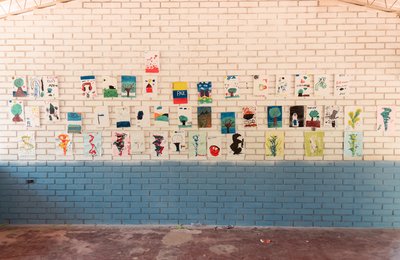Article 20.
(1) Everyone has the right to freedom of peaceful assembly and association.
(2) No one may be compelled to belong to an association.
Freedom of association is the individual right to come together with other individuals and collectively express, promote, pursue and defend common interests. In this sense, diverse international and national instruments recognise this right as fundamental.
In a country with more than 4 million IDPs and many violations of Human Rights, International Human Rights and International Humanitarian Law organisations represent the best way to demand juridical action on the application of constitutional guarantees.
In Colombia there are important legal instruments with the objective of monitoring and evaluating policies relating to IDPs. The aim is to generate space for participation, and effective and timely participation processes under the coordination of the National System for Integral Attention to the Displaced Population- (Sistema Nacional de Atención Integral a la Población Desplazada – SNAIPD).
At same time however many IDP organisations in Colombia are facing serious problems. The Colombian Constitutional Court has been denounced by various governmental, non-governmental and international organisations. Additionally it is well known that the leaders and representatives of displaced people are often subjected to persecution, threats, attacks, murder, torture, detention, and false accusations, often at the hands of armed groups operating outside the law.
The Colombia Constitutional Court in the decision Auto No. 200 of August 13, 2007, noted that the right to life and personal security of leaders and representatives of IDPs in special risk situations requires urgent action by the authorities for the purpose of ensuring their protection to allow them to continue the process of overcoming the unconstitutional situation in the field of internal displacement in the country. In this decision the Colombia Constitutional Court declared that the inhumane living conditions for the country’s IDPs were unconstitutional and ordered the authorities to take action.
Those threatened are in an incredibly difficult situation but often continue to work on behalf of the communities; such work should be encouraged by the Colombian state and not ignored.
One example of this situation is presented by of the League of Displaced Women (LMD) and the City of Women. They warn of the continued risk and vulnerability for participants:
“Despite the national and international charges (accusations) made by the League, just as with the repeated warnings from the System of Early Alerts from the Public Defender, they continue to be victimised by violations of their human rights.” http://www.ligademujeresdesplazadas.org/magazine/seccion.asp?id=130
The women in Colombia and many other places around the world suffer from serious violations of their Human Rights; in situations of armed conflict their conditions are often even worse.
The general situation and the added threat to their safety represent a serious obstacle to the attainment of dignity and inclusion of female victims of forced displacement.
Conclusion
Although in Colombia there are some important mechanisms for the participation of organisations for victims of forced displacement, the conditions facing the leaders of such organisations makes the vindication of human dignity a very difficult job.
Currently the Colombian State has not fulfilled its obligations to protect the Right to life and security of the victims of forced displacement, or their leaders or representatives.
Freedom of Association is one of the most important opportunities IDPs have to enhance their community participation. It is therefore a clear obligation of governments to promote the participation of IDPs in such organisations.





